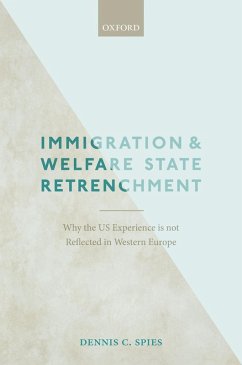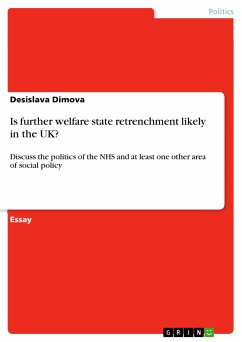Is large-scale immigration to Europe incompatible with the continent's generous and encompassing welfare states? Are Europeans willing to share welfare benefits with ethnically different and often less well-off immigrants? Or do they regard the newcomers as undeserving and their claim for welfare rights as unjustified? These questions are at the heart of what has to become known as the 'New Progressive Dilemma' debate -- and the predominant answers given to them are rather pessimistic. Pointing to the experiences of the US, where a multi-racial society in combination with a longstanding history of immigration encounters very limited welfare provision, many Europeans fear that the continent's new immigrant-based heterogeneity may push it toward more American levels of redistribution. But are the conflictual US experiences really resembled in the European context? Immigration and Welfare State Retrenchment addresses this question by connecting the New Progressive Dilemma debate with comparative welfare state and party research in order to analyse the role ethnic diversity plays for welfare reforms in the US and Europe. Whereas the combination of racial patterns and party politics had and still has serious consequences for the US welfare system, the general message of the book is that these are not resembled in the Western European context. While many Europeans are very critical of immigration and willing to ban immigrants from welfare benefits, both the institutional design of European welfare programs and the economically divided anti-immigrant movement prevent immigration concerns from translating into actual retrenchment in the core areas of welfare.
Dieser Download kann aus rechtlichen Gründen nur mit Rechnungsadresse in A, B, BG, CY, CZ, D, DK, EW, E, FIN, F, GR, HR, H, IRL, I, LT, L, LR, M, NL, PL, P, R, S, SLO, SK ausgeliefert werden.









